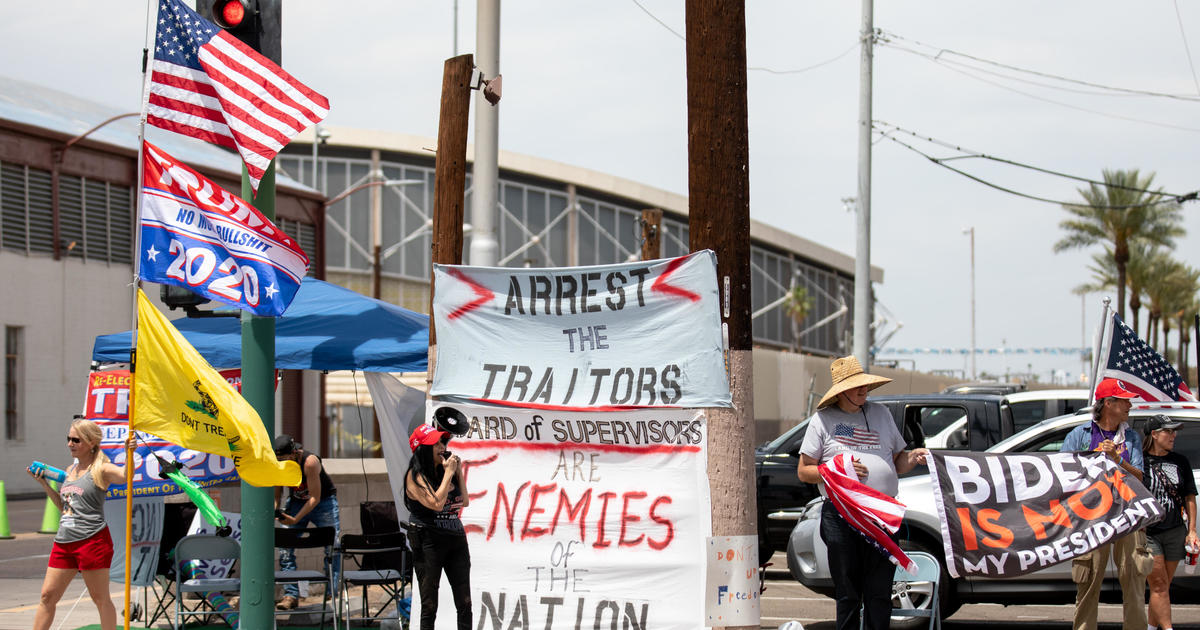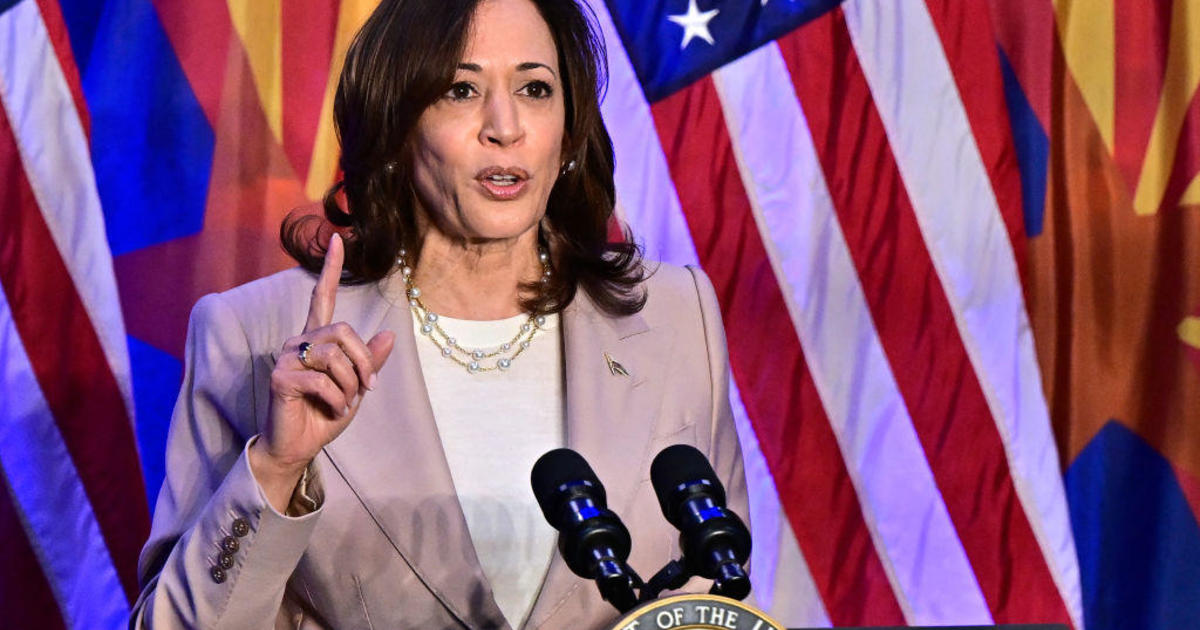Bernie Sanders calls Trump "racist" at South Carolina MLK Day speech
Columbia, S.C. – On the steps of the South Carolina State Capitol, Senators Cory Booker and Bernie Sanders on Monday joined local leaders of the state NAACP chapter and called for an end to racial injustice. Only one of them leveled a direct, personal attack on President Trump.
"We now have a president of the United States who is a racist," Sanders, an independent senator from Vermont, told the crowd, adding later, "What a president is supposed to do is to bring us together. And we have a president intentionally, purposefully trying to divide us up by the color of skin, by our gender, by the country we came from, by our religion."
Speaking just before Sanders at a Martin Luther King Jr. Day event, Booker, a Democrat representing New Jersey, didn't go as far, preferring instead to echo a popular refrain of former President Barack Obama, who liked to remind crowds that King "talked about the arc of the moral universe bending towards justice. But it does not bend with inevitability. We must be the arc-benders."
"This is not a time for us to rest in our country," Booker added. "The work is not done. The dream still demands."
South Carolina hosts the fourth contest in the 2020 Democratic presidential primary calendar. It will also be an important test of which candidates can appeal to a key constituency in the Democratic Party: African-American voters, who in 2016 made up 61 percent of the Democratic primary voters in that state, according to CBS News exit poll data.
For Democrats to reclaim the White House in 2020, they'll need overwhelming support from black voters, who helped drive Obama to victory in 2008 and 2012 and whose tepid support for former secretary of state Hillary Clinton contributed to her narrow losses in several key Midwestern swing states.
Obama won 95 percent of African-American voters nationwide in 2008 and 93 percent in 2012. But Clinton earned just 88 percent of their vote – a smaller number that couldn't offset Trump's massive advantage among white voters.
The 2018 midterms showed positive signs for Democrats. They managed to win 90 percent of African-American voters nationwide. But voters and leaders warn that politicians cannot ignore black communities and expect their support in 2020.
"For too long politicians have taken our votes for granted. That we'll just vote straight ticket," said Rev. Shawn Johnson, Pastor at New Providence Missionary Baptist Church. "We have to learn to make our requests known and if those folks cannot champion our causes, we have to vote them out."
Though neither senator has officially announced a campaign for president in 2020, their visit to the South Carolina NAACP's annual King Day celebration suggests that both are seriously eyeing a run.
After the event, Booker told reporters he's "not that far from making a decision" about a potential campaign.
"It's about them showing their presence," said Q'ladrin Qourters, a student with the NAACP Aiken Collegiate Chapter. She wants to see the march, now in its 19th year, continue to grow – and thinks having high profile politicians involved is a "win-win."
"This will be my first time seeing their faces, so if it is their initiative of showing that they're going to be for the youth and showing what they're going to do then, hey, I'm all for it."
Sanders, who struggled to win black voters in 2016, delivered his message about economic inequality along racial lines.
"Racial inequality must be central to combatting economic inequality if we are to create a government that works for all of us not one percent," he said. "We are going to change national priorities of this country, so that in this country justice rings out for all. That every American regardless of color of his skin, regardless of whether he or she is rich or poor, can have the quality of life that all human beings deserve."
Booker would be the second black candidate to enter the Democratic primary. South Carolina could be an opportunity for him to set himself apart from a crowded field.
On Monday, he cast himself as a unifying voice, urging voters to find what he called "a courageous empathy."
"King said we can never let someone pull us so low as to hate them. We need each other in this nation," he said. "We will be measured by our defiant love and our ability to pull people together and help them to recognize the lines that divide us are nowhere near as strong as the ties that bind us."
"We come to the state house as a reminder that we're still here. We still have issues. We still have concerns," said Brenda Murphy, president of the South Carolina NAACP, which organized the march. She says both senators have proven they share those concerns.
"We're glad they're here," Murphy said.
The visit by Sanders and Booker in the January before election year was encouraging to some voters.
"This probably is the earliest we've ever seen anyone in politics running for higher office to come to King Day at the Dome," said Donfra Miller, who brought his three children to the march. He said history has shown that most politicians ignore black voters, but he believes Booker and Sanders are listening.
Lendora Nowlin agrees, saying all politicians need to do more to show black voters they care about their communities and that 2020 candidates need to get involved soon.
"They've got to get their name in the public," she said. "They should come visit with groups and invite themselves to more events."
Other Democratic candidates are already making trips to the state. Sen. Elizabeth Warren, of Massachusetts, is visiting on Wednesday and California Sen. Kamala Harris, who announced a run for the presidency on Monday, will be holding an event in the state on Friday.
Editor's note: An earlier version of this article said that South Carolina holds the third presidential nominating contest for Democrats. But it comes after Nevada, making it the fourth contest.



